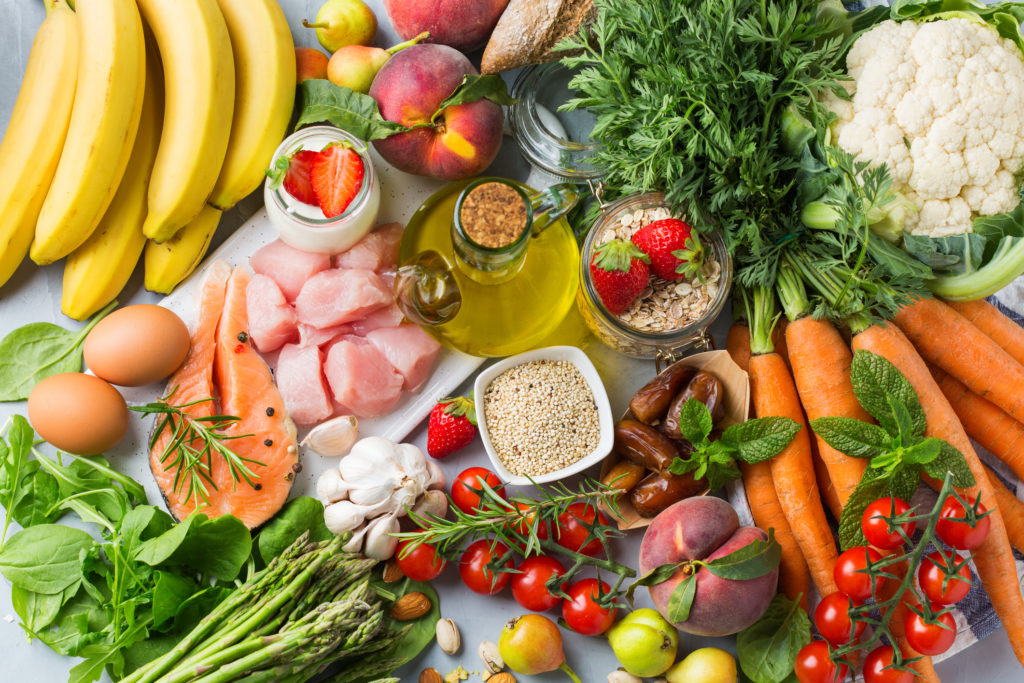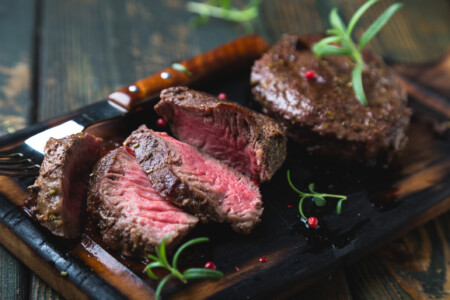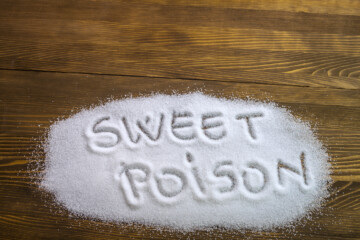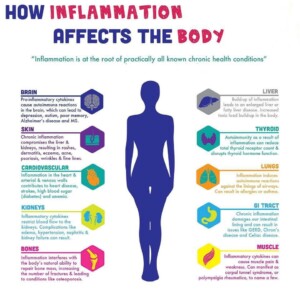About 8 minutes of reading time.
Eating clean means more than simply washing the veggies!
At first, changing my diet was perhaps the most challenging change in my heart attack recovery. Quitting smoking and consistently exercising was easier! As time progressed, I discovered that I could eat much more food that tasted great!
I was terrified to eat during the first month and unintentionally starved myself! I started out weighing 220# (I’m 6’6”) and was 208 at the end of January. That’s 12 pounds lost in a month!
“They” all told me absolutely no/low fat, no cholesterol, no sugar, low sodium, and only 2,000mg max a day, no red meat, no bread, no pasta, no carbs.
WHAT COULD I EAT? Confusion set in fast! I started researching the famous named restrictive diets… Vegetarian, KETO, Paleo, Vegan, DASH, Mediterranean, and _______. Every named diet contradicted each other in varying degrees, yet so many people swear by them. I’ve found that a topic that will cause more heated debates than politics is dieting.
Confusion, conflicting info, and a realization.
Many websites and so-called “experts” will confuse you in two seconds flat. Many studies are cherry-picked and quoted only to support the author’s narrative. The same goes for all of the Netflix, HULU, and Amazon Prime documentaries. I think I have watched them all. MANY good points to ALL of those named and restrictive diets and documentaries; however, I have problems with every one of them because of the good logical issues that others made.
I came to a simple and logical conclusion that I wish I had known about at the beginning of all of this. A doctor that filled in for my PCP one visit backed up my conclusion. He was very knowledgeable about nutrition, more than any other doctor I’ve ever seen. That’s because most doctors get very little training in nutrition! A sad fact is that I possibly have more formal nutrition training when I went to culinary school than some doctors that I’ve seen!
What does “diet” mean?
First, keep this in mind. The word “diet” is simply all of the food (and beverages) consumed regularly. Notice earlier I said “restrictive diets.” That is what most people think of when they hear diet… Restrictions, No carbs, No meat, No _____. Generally, these types of diets eliminate an entire macro-nutrient! WHY?! (There are a handful of medical reasons why this may be necessary for some people.)
The common ground and root cause of most ailments and disease.
I realized that NOT ONE of those named diets promotes added sugars or refined grains, which are simple carbs. I also learned that simple carbs cause the most inflammation, AND inflammation is the root cause of most ailments in which people suffer! Simple logic tells me not to eat simple carbs because they are among the leading causes for many bad things to happen! Whole grains, whole fruit, whole veggies are complex carbs. SOME complex carbs can be of some benefit, but in balance with fats and proteins. That balance can vary depending on your individual CURRENT needs and goals. That balance can vary depending on your needs and goals.
From everything I’ve learned that you can eat that causes inflammation in the body, which ends up causing many illnesses and ailments, it is just a crock of BS! I don’t know about you, but I don’t want any BS in my food anymore. Kind of like the BS Free Eggs from Vital Farms.😆 (Great marketing!) So maybe my diet could be called “NOBS,” eh, I’ll call it Clean Eating.
There isn’t a single set of requirements for “clean eating,” and MANY interpretations of it! If you gave a recipe to ten people, you’d get ten different results. The same holds if you asked ten people what “eating clean” means!
To me, “clean eating” means “the most nutrient-dense, best quality of an item/product that I can get. These foods are as close to their natural form with as few ingredients as possible that will nourish my body.”
Eating clean doesn’t have to be strict.
You could also call me a “flexitarian,” which is a “flexible vegetarian,” but I’m sure I eat more meat than “they” prefer, so I’ll stick with “Eating Clean.”
Some people think or assume that I’m a very strict eater. No, not really, but maybe I am compared to them. I only restrict stuff with no nutritional value or has no healthy or beneficial purpose. Joy and pleasure isn’t necessarily a healthy and beneficial purpose. I’m not prohibiting broad/natural forms such as fish, poultry, red meat, legumes, etc.; I greatly restrict pastries, biscuits, pasta, white bread, etc.

You could research every food item and find that if everything is consumed to a certain quantity, it can be bad for you. You would end up with an empty plate! An example is sucralose. Even though it is an item that I avoid at almost all costs, I use a couple of products that have it; however, it is a tiny negligible amount and towards the end of the ingredient list.
It’s not that expensive.
I often hear, “It’s too expensive to eat well!” My typical response is, “Good food can cost more, but it’s a lot less expensive than being in a hospital and/or on a list of meds!!!” I will add here that more nutritious versions of foods do cost more than their conventional counterparts such as grass-fed vs grain-fed beef, so if cost truly is a factor, don’t let it discourage you from eating healthy. You CAN still eat healthy on a tighter budget.
Eating clean and the effect on my medication.
Speaking of meds, I started on the following medicines: 80 mg Atorvastatin (Cholesterol)*, 90 mg Brilinta (Blood Thinner), 100 mg Metoprolol Tartrate (Beta Blocker), 5 mg Lisinopril (Blood Pressure), 81 mg Aspirin (Blood Thinner)*. I’m told the * items I’ll be on the rest of my life, and guess what, those are the only two that I’m currently prescribed! The Atorvastatin was a low 20mg dose only ten months after the heart attack until December 2021 when it was reduced to 10mg!
Before the heart attack, I would get heartburn/acid reflux frequently. It got to the point where I would take an antacid almost daily. Guess what I haven’t had heartburn since the heart attack! I don’t know exactly what was causing it, but I suspect the enormous quantity of sugar that I consumed. Eating Clean like this has helped me drop medications, AND I have no more heartburn! SCORE!
Don’t get me wrong; I’m not one of the 100% die-hard “all or nothing” types. I’ll still have a piece of pie on a special occasion or a cheeseburger every once in a while. Oh yeah, I’ll even reward myself with some KFC once every month or two, especially after a tough long sweaty run!
Eating a “bad meal” won’t undo all the good that I’ve done, just like eating one salad won’t make me healthy. Many bad meals are what would make me unhealthy again.
This is how I generally eat clean.
Usually Organic Ingredients
Pesticides aren’t good for the body, and it’s better to be on the safe side than saving a dollar. Be sensible though, cow manure is organic, but we don’t want to be eating that! (NOBS! Maybe I need to “create a diet.” 😆) Just because something is organic doesn’t necessarily mean that it’s always the best option!
Definitely get organic for the Dirty Dozen items!
Pasture-raised Poultry

Pasture-raised animals have more nutrients and Omega-3 fatty acids than their counterparts, making them better for our bodies.
Cage-Free and Free-Range are typically BS marketing terms that really mean nothing. (Some local farmers do say “free-range” and they truly are pasture-raised.) The birds may not be in a cage, but they don’t have room to roam like you are lead to imagine. Pasture-raised chickens ARE free to roam, have much better nutritional value. It’s good for the animal and us and tastes better.
Read this article on Pasture Raised Chicken that I wrote.
Wild-Caught Seafood
Like how pasture-raised poultry is better, wild-caught seafood (such as salmon, tuna, snapper, shrimp, scallops, oysters, etc.) is so much better nutritionally, normally less contaminated, and tastes better than farmed seafood. Go ahead and buy frozen to make sure there aren’t any live parasites that can infect you. Check out why I love salmon!
Grass-Fed Beef

I prefer grass-fed beef because it has much better nutrition and is pasture-raised, similar to the poultry above. Not only is it nutritionally better, but I also find that it tastes better too!
Watch out for grass-fed and grain-finished products. Grain-feeding fattens up the cattle. Hmmmmm, just like people in some ways. Grain-feeding will also add to their Omega-6 content, making it more inflammatory to our body when we consume it. Omega-6 is good, but not in the super high amounts to Omega-3 that we typically get. Read more about this in my article about inflammation.
Low sodium? *
The American Heart Association says we should consume 1,500 – 2,300 mg of sodium.
As of June 18, 2022, I’m going to leave it at that for now, but I’ll be elaborating on the * part sometime after some more experimentation. Let’s just say that after listening to “The Salt Fix” audiobook by Dr. James DiNicolantonio, a Cardiovascular Research Scientist and Doctor of Pharmacy at Saint Luke’s Mid-American Heart Institute in Kansas City, Missouri; my whole view of salt has changed. If you don’t want to spend 7+ hours listening to this VERY INTERESTING audiobook, then read Jillian Ceasrine’s review of it.
From May 21, 2022 – June 18, 2022 (as of this edit) I’ve dramatically increased my daily salt intake (REAL salt, not the typical refined table salt. ) So far my overall energy levels are better, my athletic performance is better, my sleep is better and there haven’t been any negative effects! In case you’re wondering, my blood pressure remains within my normal around 110/70! Both my doctor and cardiologist are perfectly fine with this! As I mentioned earlier, I’ll write more about this later but I can’t in good conscience be an advocate for lowering the sodium as once again, sugar is the white crystal that should be demonized! At least read Jillian’s book review!
Minimally Processed Foods
It can be difficult and time-consuming to prepare EVERYTHING from scratch, so I utilize some processed foods. Still, I AM very picky about these! These items contain as few ingredients as possible and very few if any, additives or preservatives.
Processed foods also tend to be full of other nutritionally void things to bulk up the product and the next item… sugars!
Some Whole Grains (Complex Carbs)
I believe simple carbs/sugars are almost always bad for the body especially when frequently consumed. Slow-digesting and nutritious complex carbs can be good for the body. I limit carbs to about 25% of my daily caloric intake. ABSOLUTELY NO WHITE flour, white bread, white rice, etc. if at all possible!!!
MINIMAL Added Sugar or Alternatives/Derivatives!

I generally only eat sugar when it’s natural in the whole food (fruit, honey, dates, etc.) MINIMAL syrups, cane sugar. No “-ose” ingredients or sugar alcohols unless they’re very, very small amounts and towards the end of an ingredient list. I am OK with erythritol but only in small amounts. It doesn’t affect the body like all the other sugar alcohols.
If you need some sweet tea, get unsweetened and use some pure monk fruit sweetener . Be sensible even with the natural sugars. I’ve seen protein bars advertised as “clean and minimally processed” that appear to be a great option, but the first item is dates and contains 30g or more of sugar (from the dates) and only about 2g of fiber–thus not a good option. An entire article can be written about sugars; in fact, there are MANY, and here is a really good one.
Wrapping it up.
Sometimes I eat conventional chicken and meat if I’m at a restaurant or if my family cooks something delicious with it. At those times I usually “chase” the meal with an Omega-3 capsule and make sure to eat other nutritious sides. This maintains a balance of overall happiness and healthy eating.
Eating is so much more enjoyable now. There are so many flavors and textures that I’m now entertained with when eating as I diversify my palate! Sugar and “bad foods” are an addiction just like nicotine, AND they are NOT nutritious and are sometimes more expensive-especially in the long run. 😉
Be sure to check out other articles in the Food category where I share the exact foods that I consume.
Products mentioned in this article:
